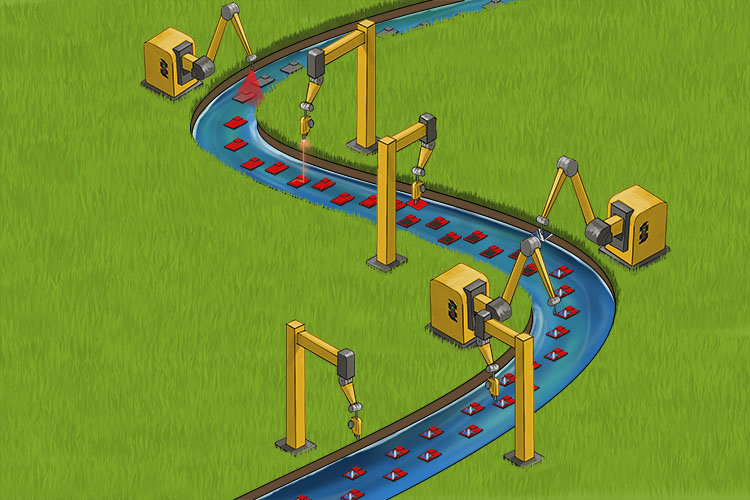Flow Production – Using a production line to make goods continuously and in large numbers
(Pronounced flow pruh-duk-shn)
To remember what flow production means use the following mnemonic:
Parts are continuously flowing through the production (flow production) line. It doesn't stop. A large number of goods are continuously produced.

Flow production is a term often used synonymously with mass production or continuous production and involves a production line with multiple stages in which products are assembled at a continuous rate. This system ensures maximum efficiency and economies of scale while producing a large number of goods. Major manufacturing companies in the technology, automotive and bottling industries use this system, with many production lines operating 24 hours a day and utilizing hundreds of robots and workers.
Most companies involved in the large-scale manufacturing of products utilise flow production. An example is Coca-Cola, whose production lines are almost completely automated, from the production of the bottles and cans, to the mixing of the drink, bottling and packaging. The conveyor belts transporting the products throughout the factories operate 24 hours a day 7 days a week in order to meet demand.
Another famous example of flow production is the Ford Motor Company. They were the first to introduce mass production through the use of a moving assembly line and therefore are one of the innovators of flow production. Nowadays, Ford has numerous factories worldwide operating on a much more complex but much more efficient flow production system. The moving assembly line concept remains, but most of the workers have been replaced by programmable robotic arms.




